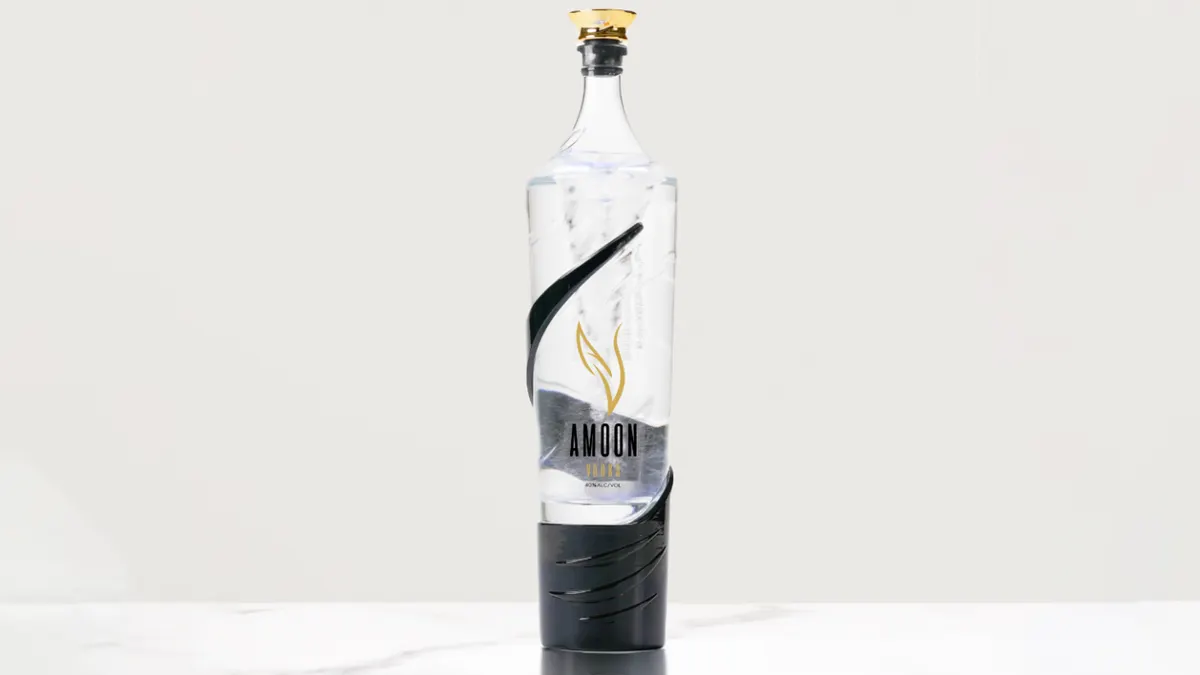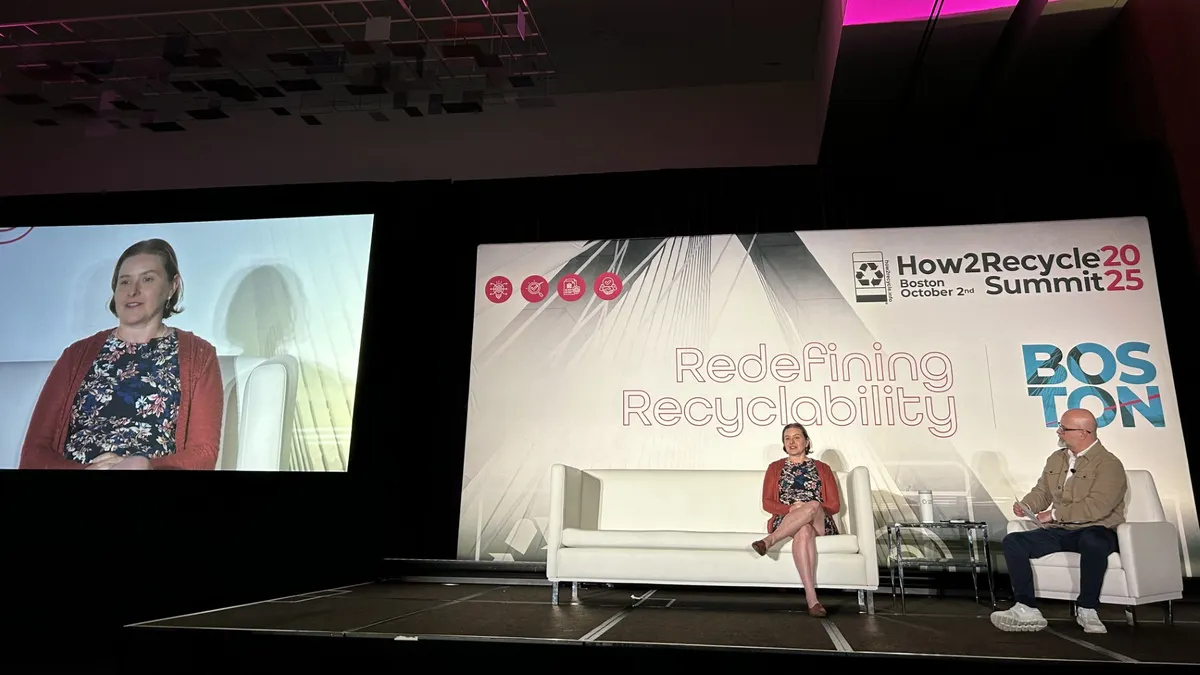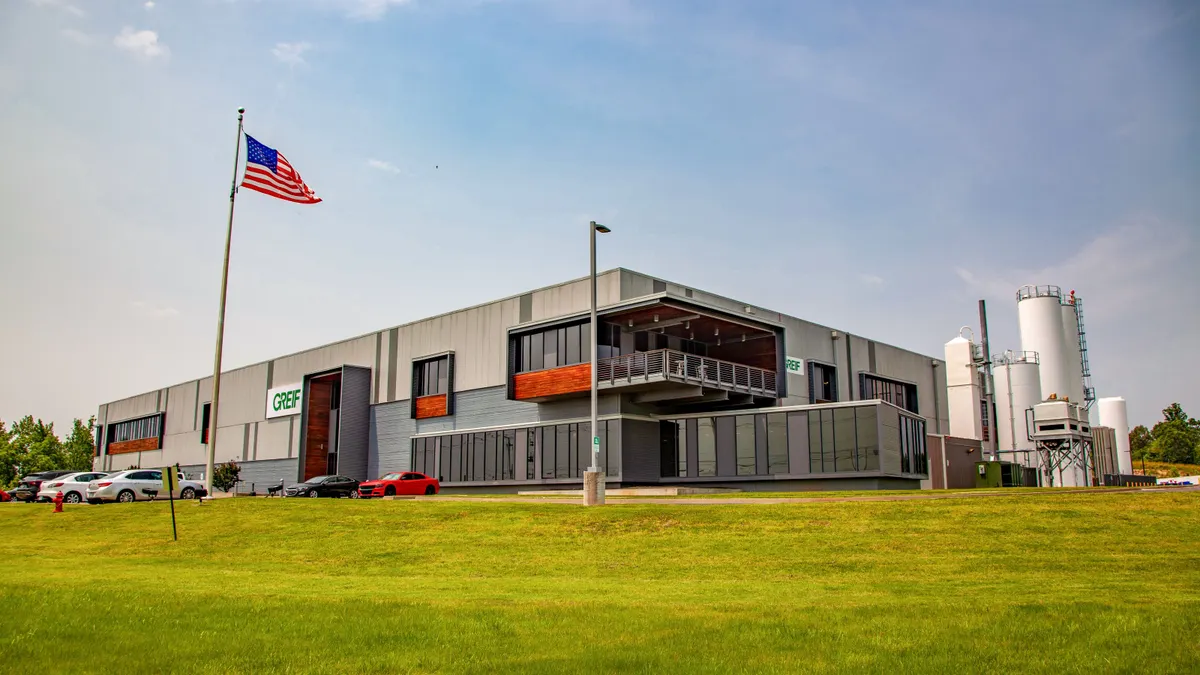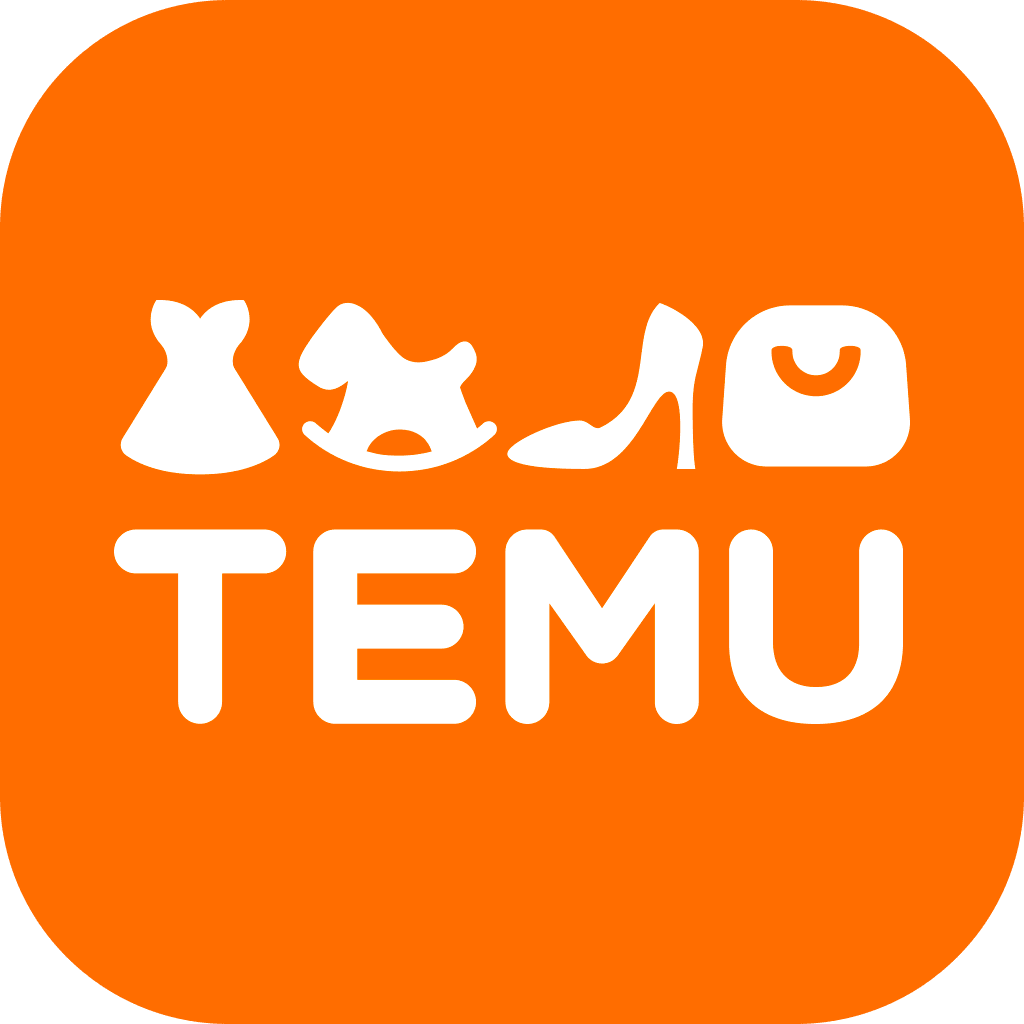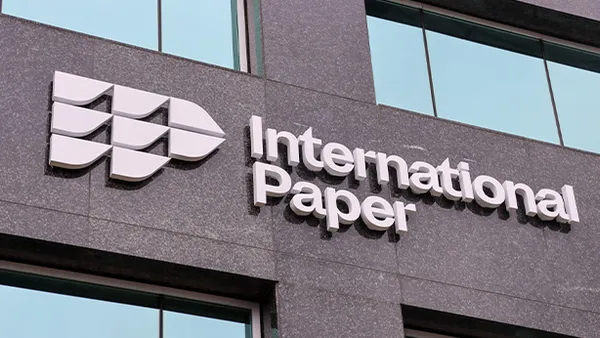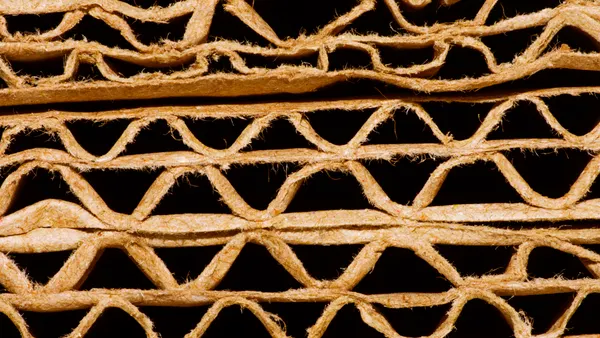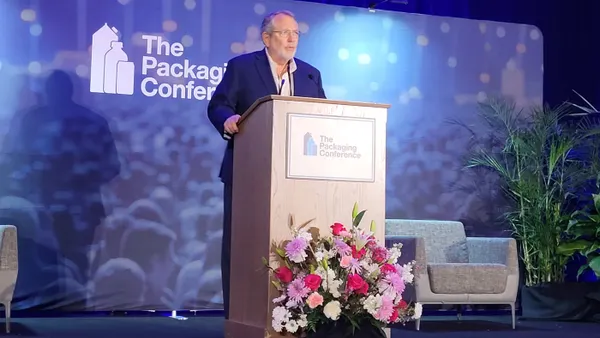Companies constantly innovate and redesign their packaging to boost performance, enhance sustainability and improve marketability. Here’s a look at four recent packaging product launches or revamps on Packaging Dive’s radar.
Give it a whirl
Amoon Spirits launched what it’s calling the world’s first “smart vodka,” with the spirits contained in an interactive bottle system. A patented “vortex control unit” inside the bottle operates a stir bar to create a vortex, which users control with an app.
The bottle is glass, the stir bar has a proprietary food-grade polypropylene coating, and the exterior bottle wrap is made from acrylonitrile butadiene styrene plastic, a spokesperson said via email.
The app allows users to customize the vortex speed and illumination with LED lights. Amoon Spirits’ founders spent six years developing the packaging and technology.
“The packaging was conceived by blending brand storytelling with modern design, exploring forms and materials that express Amoon's identity. Its creation required multiple rounds of prototyping and refinement to achieve a premium, functional, and visually distinctive final bottle,” the spokesperson said.
The product launched this quarter and is available nationwide. The team aims to add features such as gamified experiences and over-the-air updates, and to bring the experience to bottles for other types of spirits.
Stack attack
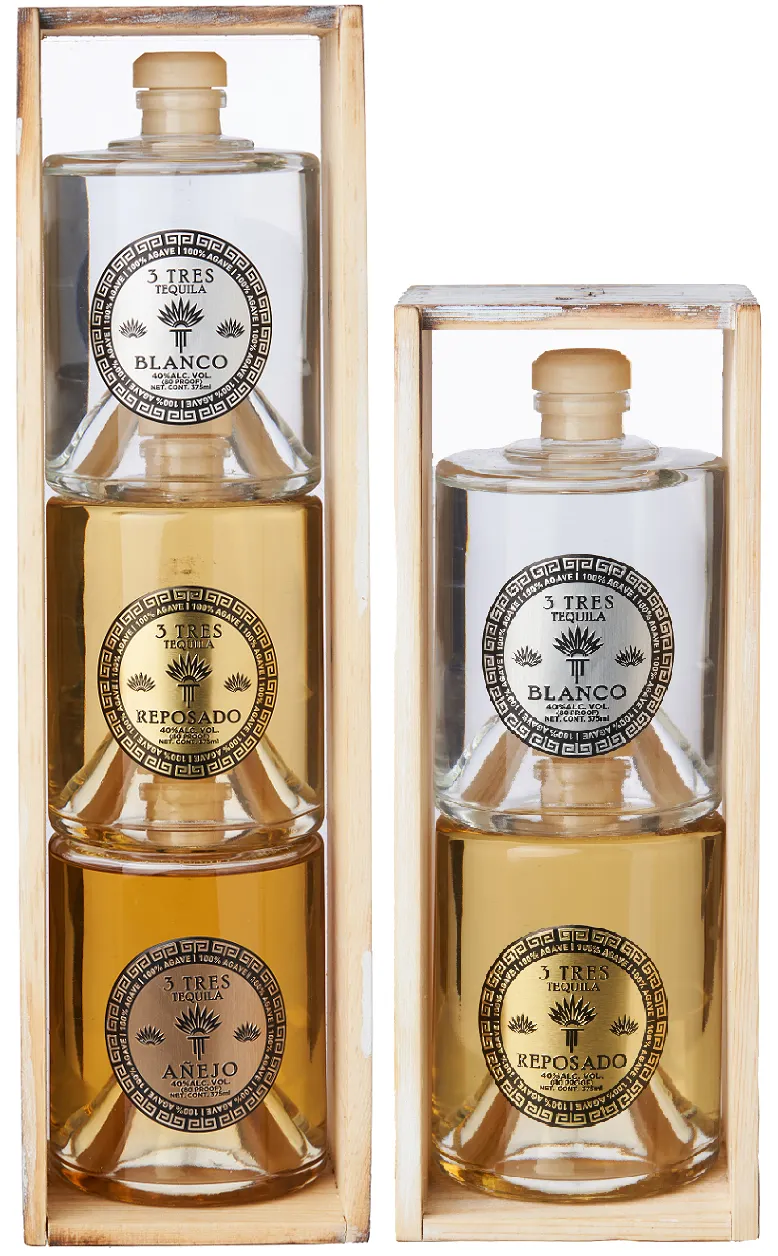
Another new alcohol packaging offering comes from Hibred Beverages, which released limited editions of 3 Tres Tequila featuring bottles that stack on top of each other. This provides a unique way to store or display the spirits, according to a company press release.
“We believe in creating products that are not only functional but also enhance the consumer's experience through innovative design,” said Hibred Beverages CEO Mark Becker in the release.
The 375-ml bottles are available in stacks of two or three and packaged in a custom wood box.
Unleash the quiche
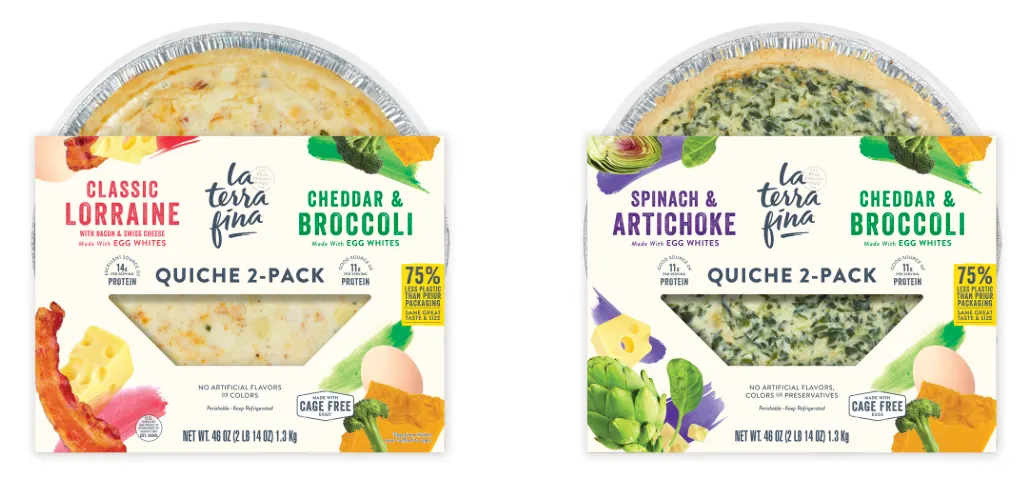
Food company La Terra Fina, in partnership with an unnamed packaging consultant, did a packaging redesign for its quiches to eliminate the plastic dome lid and tray.
The company said via email that the packaging redesign reduced plastic by 75% in its club store quiches sold as variety two-packs at Costco and Sam’s Club, while the retail versions available at various grocers use 80% less plastic than the prior version.
La Terra Fina said it switched to a more attractive product sleeve, a more protective thermoformed film, and improved pallet configuration to make logistics more efficient.
Compostables without forever chemicals

Sabert’s European division is launching a line of fiber food service packaging that it says are fully recyclable, home compostable and contain no PFAS, the so-called “forever chemicals.” Sabert touted Pulp Ultra’s strength and heat resistance qualities, which it says are sometimes lacking in PFAS-free compostable products.
“In the foodservice market, pulp packaging with no added PFAS options have faced performance challenges, a gap Sabert’s new ranges are designed to close,” said Alex Noake, senior vice president and managing director for Sabert Europe, in a news release. “Most ‘PFAS free’ solutions we’ve tested simply haven’t performed and we have been inundated with requests from customers who continue to see Sabert as credible pulp innovators.”
Pulp Ultra is part of the company’s entirely reworked pulp portfolio, which it aligned to Europe’s Packaging and Packaging Waste Regulation. The product line will be available early next year.


